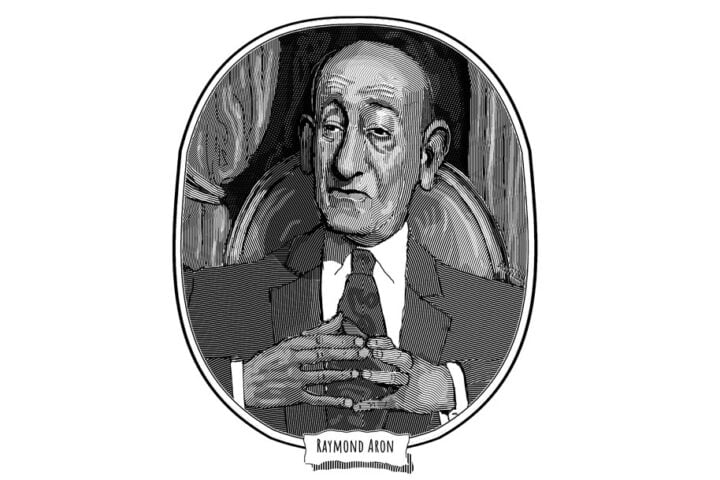A sophomore in my course on the American Founding dropped by my office hours a few weeks ago. We got around to discussing Alexander Hamilton, one of those remarkable immigrants to America who arrive with almost nothing and see us differently than we see ourselves. John Adams always had Quincy, Massachusetts, to go home to. Jefferson had Monticello; Washington, Mount Vernon. Hamilton arrived with no home—not even a home state (or colony, then), with its attendant loyalties. He came to America, the country and continent, to make his future alongside hers, and helped teach Americans to see themselves eventually as an economic and foreign policy whole. And he wasn’t the only such immigrant to see America as a unitary power in need of a foreign policy upgrade in a hostile world, I said, pointing to Henry Kissinger as another interesting case.
“Who’s Henry Kissinger?” she asked.
I stopped. She is a very smart student who does the readings and then some, and asks sharp questions. I stammered, “Are you kidding? The former secretary of state and national security advisor…?”
“No, it’s just that I never heard that name before.”
Ah, youth. One forgets…. She was born circa 2005. To someone of my generation, it’s hard to remember ever not hearing Henry Kissinger’s name. Now she has the chance to read (online) his lengthy obituaries—some praising, some damning—and discover who he was.
Kissinger was not a hero of mine. In my youth in the 1970s, like most readers of Bill Buckley’s National Review who were incipient Reaganites, I was on the other side of Kissinger’s détente policy between the U.S. and the Communists. In the Cold War I didn’t think we had to play Athens (the losing side) to the USSR’s Sparta, as Kissinger supposedly thought. Of course, it was not easy to tell what he thought, because his thoughts were always in motion, mixed with policy, diplomacy, publicity, and wit, which made him charming.
He was an early and good friend to Buckley, whose opposition to détente didn’t prevent him from admiring and loving Kissinger; and it was through Bill that I first met the former secretary of state, at a summer luncheon at Bill’s Wallacks Point place in 1978 or so. Bill sat me beside Kissinger, since I was a Harvard senior at the time and he knew Kissinger, once a star of the Government department, would want to hear all the gossip. Actually, I got more gossip from him than he got from me; he was voluble and stunningly candid for a diplomat. I mentioned this later to Bill, after Henry and his wife Nancy had withdrawn to Manhattan. “Henry is much too candid for his own good,” he said.
***
In 2004, Kissinger was to be the guest speaker at the Pacific Research Institute gala dinner in San Francisco. My wife, Sally Pipes, PRI’s president, had invited him to a private dinner the night before at a small restaurant on Nob Hill. Present for the dinner were Kissinger, Milton and Rose Friedman (the great economists), Daniel Oliver (Reagan’s chairman of the Federal Trade Commission and president of the PRI board), Cindy Sparks (Sally’s assistant at PRI), and your correspondent. The conversation started with a bang when Milton asked Henry about Israel. Milton explained that though he was a strong supporter of Israel he doubted it could survive in the long run, stuck in a very tough neighborhood and vastly outnumbered by hostile neighbors. What did the expert think? Henry, who had done so much to bring America to Israel’s rescue in the Yom Kippur War and to ease the USSR out of the Mideast, said he too was pessimistic, and doubted that Israel’s nuclear-weapons edge was enough. I continue to hope they were wrong; but the joyous reception that the Hamas pogrom against Israel has received, Iran’s burgeoning nuclear program, and how rapidly the worldwide balance of power is tilting against Israel and America make me wonder.
It may be we could use a man like Henry Kissinger again, and soon. The Biden Administration, Antony Blinken and Jake Sullivan in particular, do not strike fear in our enemies, nor inspire confidence at home. Kissinger’s immediate legacy is his books, not many of which have been treated very kindly in our pages. But circumstances are different and more desperate now, and it may be time for a relook. Diplomatic strategies and demarches become all the more important when one is holding a weaker than needed military hand.
One should mention too Niall Ferguson’s multi-volume biography of Kissinger, which has produced volume 1 and now has a point at which to end volume 2. And even as he leaves this world aged 100, Henry Kissinger’s youthful ruminations in his Harvard senior thesis have just been published as a book for the first time. Almost 400 pages as a thesis, The Meaning of History: Reflections on Spengler, Toynbee, and Kant led Harvard to impose the so-called Kissinger Rule: nothing beyond 150 pages, please.


